
Recorded in Paris in 1979, Steve Lacy (soprano sax) and Steve Potts (alto sax) perform music for the aphorisms of Georges Braque, as sung by Irene Aebi; originally issued on Hat Hut records, this reiusse remasters the original release and includes images from the score.
In Stock
Quantity in Basket: None
Log In to use our Wish List
Shipping Weight: 3.00 units
EU & UK Customers:
Discogs.com can handle your VAT payments
So please order through Discogs
Sample The Album:
Steve Lacy-soprano saxophone
Steve Potts-alto saxophone
Irene Aebi-voice
Click an artist name above to see in-stock items for that artist.
UPC: B00P1NEQBK
Label: Corbett vs. Dempsey
Catalog ID: CvsDCD018
Squidco Product Code: 20981
Format: CD
Condition: New
Released: 2015
Country: USA
Packaging: Cardboard Gatefold In Plastic Sleeve
Recorded in Paris, France, on December 14th, 1979 by Jef Gibson. Originally issued on Hat Hut Records in 1981 as catalog code 1R20. Remastered at Experimental Sound Studio, Chicago, 2015.
"Soprano saxophonist Lacy wrote the suite of tunes for Tips to feature the aphorisms of painter Georges Braque, as sung by Irene Aebi. Together with his right-hand-man, alto saxophonist Potts, he and Aebi recorded these 14 anthemic tracks in Paris in 1979, and the young hat Hut label issued them on a now-rare LP. The music allowed Lacy to extend and deepen his longstanding interest in setting text to music, and at the same time it provided a perfect context for extrapolated duets with Potts, whose dedication to Lacy over twenty years of collaboration somewhat overshadowed his own creative output. This CD is the first release of Lacy's full hat Hut oeuvre, mastered from the original tapes, which CvsD acquired last year."-Corbett Vs. Dempsey
"Georges Braque (1882-1963) was a major 20th-century French painter, collagist, draughtsman, printmaker and sculptor. His most important contributions to the history of art were in his alliance with Fauvism from 1906, and the role he played in the development of Cubism. Braque's work between 1908 and 1912 is closely associated with that of his colleague Pablo Picasso. Their respective Cubist works were indistinguishable for many years, yet the quiet nature of Braque was partially eclipsed by the fame and notoriety of Picasso."-Wikipedia

The Squid's Ear!
Artist Biographies
• Show Bio for Steve Lacy "Steve Lacy (July 23, 1934 - June 4, 2004), born Steven Norman Lackritz in New York City, was a jazz saxophonist and composer recognized as one of the important players of soprano saxophone. Coming to prominence in the 1950s as a progressive dixieland musician, Lacy went on to a long and prolific career. He worked extensively in experimental jazz and to a lesser extent in free improvisation, but Lacy's music was typically melodic and tightly-structured. Lacy also became a highly distinctive composer, with compositions often built out of little more than a single questioning phrase, repeated several times. The music of Thelonious Monk became a permanent part of Lacy's repertoire after a stint in the pianist's band, with Monk's songs appearing on virtually every Lacy album and concert program; Lacy often partnered with trombonist Roswell Rudd in exploring Monk's work. Beyond Monk, Lacy performed the work of jazz composers such as Charles Mingus, Duke Ellington and Herbie Nichols; unlike many jazz musicians he rarely played standard popular or show tunes. Lacy began his career at sixteen playing Dixieland music with much older musicians such as Henry "Red" Allen, Pee Wee Russell, George "Pops" Foster and Zutty Singleton and then with Kansas City jazz players like Buck Clayton, Dicky Wells, and Jimmy Rushing. He then became involved with the avant-garde, performing on Jazz Advance (1956), the debut album of Cecil Taylor,:55 and appearing with Taylor's groundbreaking quartet at the 1957 Newport Jazz Festival; he also made a notable appearance on an early Gil Evans album. His most enduring relationship, however, was with the music of Thelonious Monk: he recorded the first album to feature only Monk compositions (Reflections, Prestige, 1958) and briefly played in Monk's band in 1960:241 and later on Monk's Big Band and Quartet in Concert album (Columbia, 1963). Lacy's first visit to Europe came in 1965, with a visit to Copenhagen in the company of Kenny Drew; he went to Italy and formed a quartet with Italian trumpeter Enrico Rava and the South African musicians Johnny Dyani and Louis Moholo (their visit to Buenos Aires is documented on The Forest and the Zoo, ESP, 1967). After a brief return to New York, he returned to Italy, then in 1970 moved to Paris, where he lived until the last two years of his life. He became a widely respected figure on the European jazz scene, though he remained less well known in the U.S. The core of Lacy's activities from the 1970s to the 1990s was his sextet: his wife, singer/violinist Irene Aebi,:272 soprano/alto saxophonist Steve Potts, pianist Bobby Few, bassist Jean-Jacques Avenel, and drummer Oliver Johnson (later John Betsch). Sometimes this group was scaled up to a large ensemble (e.g. Vespers, Soul Note, 1993, which added Ricky Ford on tenor sax and Tom Varner on French horn), sometimes pared down to a quartet, trio, or even a two-saxophone duo. He played duos with pianist Eric Watson. Lacy also, beginning in the 1970s, became a specialist in solo saxophone; he ranks with Sonny Rollins, Anthony Braxton, Evan Parker, and Lol Coxhill in the development of this demanding form of improvisation. Lacy was interested in all the arts: the visual arts and poetry in particular became important sources for him. Collaborating with painters and dancers in multimedia projects, he made musical settings of his favourite writers: Robert Creeley, Samuel Beckett, Tom Raworth, Taslima Nasrin, Herman Melville, Brion Gysin and other Beat writers, including settings for the Tao Te Ching and haiku poetry. As Creeley noted in the Poetry Project Newsletter, "There's no way simply to make clear how particular Steve Lacy was to poets or how much he can now teach them by fact of his own practice and example. No one was ever more generous or perceptive." In 1992, he was the recipient of a MacArthur Fellowship (nicknamed the "genius grant"). He also collaborated with a wide range of musicians, from traditional jazz to the avant-garde to contemporary classical music. Outside of his regular sextet, his most regular collaborator was pianist Mal Waldron,:244-245 with whom he recorded a number of duet albums (notably Sempre Amore, a collection of Ellington/Strayhorn material, Soul Note, 1987). Lacy played his 'farewell concerts to Europe' in Belgium, in duo and solo, for a small but motivated public. This happened in Brussels, Antwerp, Ghent, Bruge and Bergen. This recollection is published by Naked Music. In Ghent he played with the classical violinist Mikhail Bezverkhni, winner of Queen Elisabeth Concours. He returned to the United States in 2002, where he began teaching at the New England Conservatory of Music in Boston, Massachusetts. One of his last public performances was in front of 25,000 people at the close of a peace rally on Boston Common in March 2003, shortly before the US-led invasion of Iraq. After Lacy was diagnosed with cancer in August 2003, he continued playing and teaching until weeks before his death on June 4, 2004 at the age of 69." ^ Hide Bio for Steve Lacy • Show Bio for Steve Potts "Born January 21 1943 in Columbus, Ohio, Steve Potts comes from a musical family. At a very early age, he was fascinated by the saxophone after having heard his cousin, Buddy Tate, play sax in Count Basie's orchestra. While simultaneously studying architecture in Los Angeles, he also studied music with Charles Lloyd. But he dedicated himself to music after that by moving to New York to study with Eric Dolphy. He became friends with Ron Carter and frequented Coltrane, Tony Williams, Jimmy Garrison, Herbie Hancock, Chick Corea, Larry Coryell and Wayne Shorter. He played with Roy Ayers, Richard Davis, Joe Henderson, Reggie Workman and Chico Hamilton, the latter of whom he worked with for four years. In 1970, leaving behind his New York life, Steve left to launch himself in Europe. He landed in Paris, and immediately started working with Brigitte Fontaine and performing with Dexter Gordon, Johnny Griffin, Mal Waldron, Ben Webster and Hal Singer with whom he enjoys a continuing musical and personal relationship ... not to mention the Art Ensemble of Chicago and other American and French groups. He formed his own group in 1973 with Christian Escoudé, Boulou Ferré, Oliver Johnson and Gus Nemeth. He also met Steve Lacy at this time. They traveled the world performing together for over 23 years and recorded over 25 albums. This did not prevent Steve Potts from leading other projects such as accompanying Jessye Norman in 1982, or working with the African group Ghetto Blaster in 1986, or composing film music. He created a new group in 1990 and recorded the CD " Pearl " with Richard Galliano, Jean-Jacques Avenel and Bertrand Renaudin. As eclectic as ever he also recorded with Imaran a group of Touareg musicians and in 2000 released "Wet Spot" with a new quartet consisting of Michael Felberbaum, Stéphane Persiani, Richard Portier. Also about this time, Potts started a very rich period performing regularly at the Sept Lézards club, where over a period of eight years it was possible fo invite more than 70 musicians such as Alain Jean-Marie, John Betsch, François Ripoche, François Théberge, Stéphane Belmondo, Médéric Collignon, Stéphane Guillaume, Olivier Ker Orio, Jérôme Rateau, Morena Fattorini, Romain Clerc-Renaud, to play with his three regular groups: Stevie and the Boogah Band (George-Edouard Nouel, Stéphane Persiani, Jean-Claude Montredon), the Institute of Advanced Harmony (Michael Felberbaum, Michel Edelin, Thomas Savy, Stephen Kerecki, Richard Portier) and Steve Potts and Family (Michel Edelin, Sophia Domancich, Jean-Jacques Avenel, Simon Goubert). At the same time, Steve Potts started an improvization workshop, the Menilmontant Street Band which he participates at the Ateliers du Chaudron. For the present, Potts is contemplating his next recording project, continuing to tour a bit, especially in Italy where he performs with pianist Gianni Lenoci and musicians around him, and preparing a surprise project which will be announced in the near future." ^ Hide Bio for Steve Potts • Show Bio for Irene Aebi Irene Aebi (born July 27, 1939 in Zurich, Switzerland) is a Swiss singer, violinist and cellist. She is noted for her work with jazz saxophonist Steve Lacy, her husband, from the 1960s to his death in 2004. Initially a classically trained instrumentalist, she only began to sing at Lacy's request. In a review of a 1999 concert, critic Frank Rubolino describes Aebi as possessing a "brusque, forceful style of singing". ^ Hide Bio for Irene Aebi
11/18/2024
Have a better biography or biography source? Please Contact Us so that we can update this biography.
11/18/2024
Have a better biography or biography source? Please Contact Us so that we can update this biography.
11/18/2024
Have a better biography or biography source? Please Contact Us so that we can update this biography.
Track Listing:
1. A - We Will Never Have Any Peace - The Present Is Perpetual 3:18
2. B - Do Not Imitate What You Wish To Create 3:15
3. C - I Want To Be In Tune With Nature Rather Then Copy It 3:13
4. D - I Don't Do As I Like, I Do As I Can 3:21
5. E - Art Is Made To Trouble, Science Reassures 3:11
6. F - The Only Thing Valueable In Art, Is What Cannot Be Explained 3:20
7. G - One Must Achieve A Certain Temperature That Makes Things Malleable 3:22
8. H - Limited Means Lead To New Forms, Invite Creation, Make Style 3:35
9. I - Impregnation, Obsession, Hallucination 3:15
10. J - It's The Change HappeningThat Reveals To Us, Day To Day Exsistance 3:16
11. K - Echo Answers Echo, All Is Repercussion 3:40
12. L - For Every Gain There Is A Corresponding Loss - That Is The Law Of Compensation 3:23
13. M - Progress In Art Is Not About Extending Its Limits, But In Better Understanding Them 3:27
14. N - With Age, Art And Life Become One 0:43
Improvised Music
Jazz
Trio Recordings
Unusual Vocal Forms
Lacy, Steve
Recordings by or featuring Reed & Wind Players
Search for other titles on the label:
Corbett vs. Dempsey.

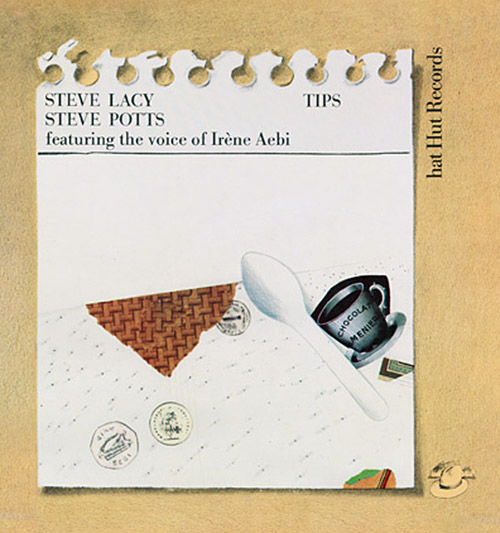

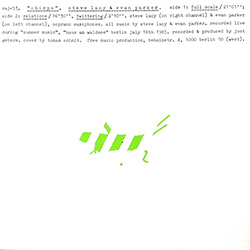
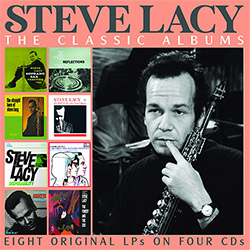

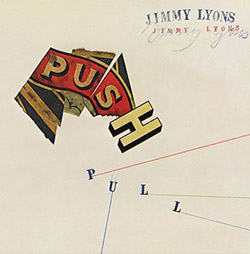
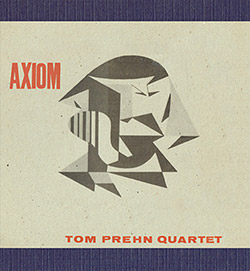
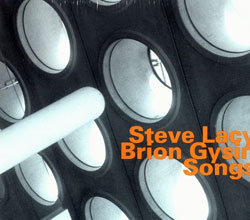
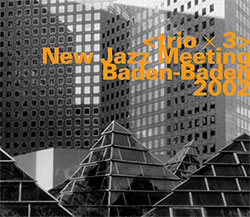

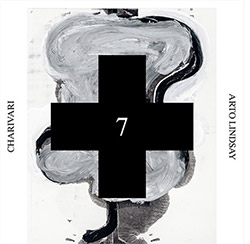

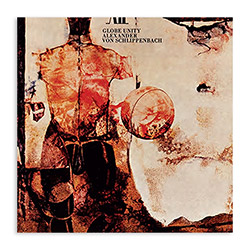
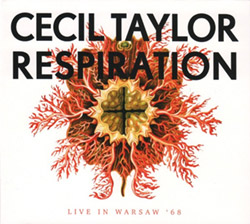


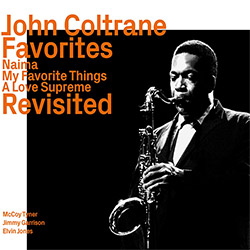

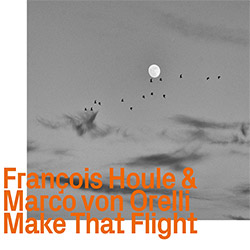
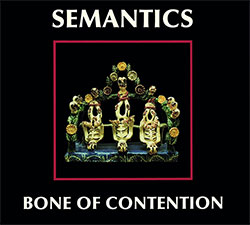




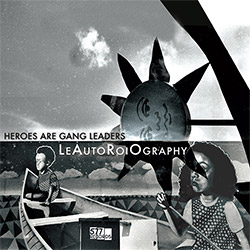
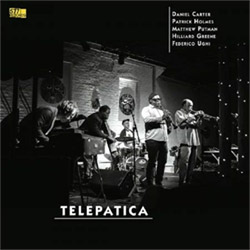















![Barker / Parker / Irabagon: Bakunawa [VINYL]](https://www.teuthida.com/productImages/misc4/35533.jpg)
![Blaser, Samuel / Marc Ducret / Peter Bruun: Dark Was The Night, Cold Was The Ground [VINYL 10-inch]](https://www.teuthida.com/productImages/misc4/35492.jpg)










![Warren, Kenny (Warren / Hoffman / Ellman): Sweet World [VINYL]](https://www.teuthida.com/productImages/misc4/35451.jpg)


![Blake, Ran / Dave Knife Fabris: Live Amsterdam 2006, First Visit [CD + POSTCARDS]](https://www.teuthida.com/productImages/misc4/35275.jpg)
![Sanna, Claudio: Compositori Sardi Contemporanei II [2 CDs]](https://www.teuthida.com/productImages/misc4/35317.jpg)












![Nevai, Nandor: <<The PRICE of FRONTIER>> Book 1: FULK [BOOK + 4 CDs]](https://www.teuthida.com/productImages/misc4/35464.jpg)
![Nevai, Nandor: <<The PRICE of FRONTIER>> Book 2: MARTIAL [BOOK + 4 CDs]](https://www.teuthida.com/productImages/misc4/35465.jpg)
![Nevai, Nandor: <<The PRICE of FRONTIER>> Book 3: JASSOM [BOOK + 4 CDs]](https://www.teuthida.com/productImages/misc4/35466.jpg)
![Nevai, Nandor: <<The PRICE of FRONTIER>> Book 4: HARD-WON [BOOK + 4 CDs]](https://www.teuthida.com/productImages/misc4/35467.jpg)






![DNS: Taking Big Bites Of The Khandas Three Cafes Deep [2 CDs]](https://www.teuthida.com/productImages/misc4/35334.jpg)




![Cleaver, Gerald: The Process [VINYL]](https://www.teuthida.com/productImages/misc4/34966.jpg)




![Alva Noto: HYbr:ID II [VINYL 2 LPs]](https://www.teuthida.com/productImages/misc4/35201.jpg)

![Baron, Derek / Luke Martin: Distinct and Concealed [CASSETTE + DOWNLOAD]](https://www.teuthida.com/productImages/misc4/35079.jpg)

![Lyle, Erica Dawn : Colonial Motels [CASSETTE + DOWNLOAD]](https://www.teuthida.com/productImages/misc4/35080.jpg)







![Alva Noto: HYbr:ID III [VINYL 2 LPs]](https://www.teuthida.com/productImages/misc4/35011.jpg)
![Kubisch, Christina / Trondheim Voices: Stromsanger 2022 For Six Voices And Electromagnetic Waves [VINYL]](https://www.teuthida.com/productImages/misc4/34628.jpg)








![Zurria, Manuel: Fame di Vento [3 CDs]](https://www.teuthida.com/productImages/misc4/35167.jpg)

![Granberg, Magnus / Nattens Inbrott / Skogen: Holde Traume, Kehret Wieder! [2 CDs]](https://www.teuthida.com/productImages/misc4/35038.jpg)
![Frey, Jurg: Outermost Melodie [2 CDs]](https://www.teuthida.com/productImages/misc4/35039.jpg)

![Pavone, Jessica: Reverse Bloom [VINYL]](https://www.teuthida.com/productImages/misc4/34895.jpg)




![Modney (Modney / Wooley / Gentile / Roberts / Pluta / Symthe / ...): Ascending Primes [2 CDs]](https://www.teuthida.com/productImages/misc4/34852.jpg)








![Elephant9 with Terje Rypdal: Catching Fire [VINYL 2 LPs]](https://www.teuthida.com/productImages/misc4/35355.jpg)
![Deerlady (Obomsawin, Mali / Magdalena Abrego): Greatest Hits [VINYL]](https://www.teuthida.com/productImages/misc4/34876.jpg)




![Haino, Keiji: Black Blues [2 CDs]](https://www.teuthida.com/productImages/misc4/35109.jpg)



![Surplus 1980: Illusion of Consistency [CD]](https://www.teuthida.com/productImages/misc4/35069.jpg)
![Staiano, Moe: Away Towards the Light [VINYL + DOWNLOAD]](https://www.teuthida.com/productImages/misc4/35037.jpg)




![Caveira (Gomes / Sousa / Abras / Ferrandini): Ficar Vivo [VINYL]](https://www.teuthida.com/productImages/misc4/34643.jpg)
![Gregg, J. J. / David Van Auken: Lunar Prairie [CD w/ DOWNLOAD]](https://www.teuthida.com/productImages/misc4/34611.jpg)

![Coultrain: Mundus [VINYL]](https://www.teuthida.com/productImages/misc4/32439.jpg)
![Mattin: Songbook #6 [VINYL]](https://www.teuthida.com/productImages/misc4/27317.jpg)
![Punkappella: Wake Up [7-inch VINYL]](https://www.teuthida.com/productImages/misc4/17519.jpg)
![Residents, The: WARNING: UNiNC.: Live And Experimental Recordings 1971-1972 [VINYL 2 LPs]](https://www.teuthida.com/productImages/misc4/31521.jpg)
![Coultrain: Phantasmagoria [VINYL]](https://www.teuthida.com/productImages/misc4/30142.jpg)
![Lennon, Sean Ono: Asterisms [VINYL]](https://www.teuthida.com/productImages/misc4/34517.jpg)

![Rotem Geffen: The Night Is The Night [VINYL]](https://www.teuthida.com/productImages/misc4/34631.jpg)
![Coley, Byron: Dating Tips for Touring Bands [VINYL]](https://www.teuthida.com/productImages/misc4/17906.jpg)

![Lost Kisses: My Life is Sad & Funny [DVD]](https://www.teuthida.com/productImages/misc4/lostKissesDVD.jpg)